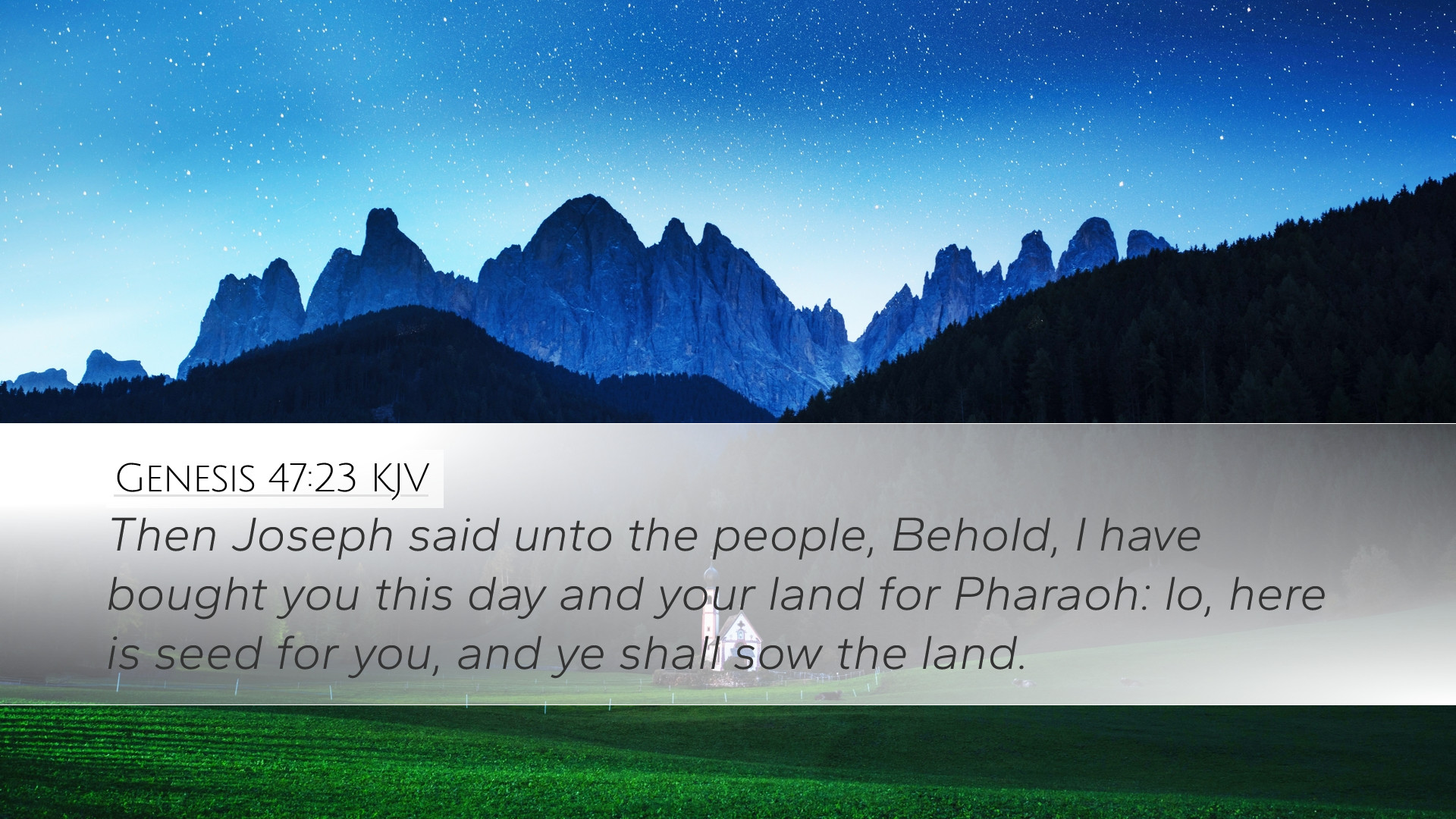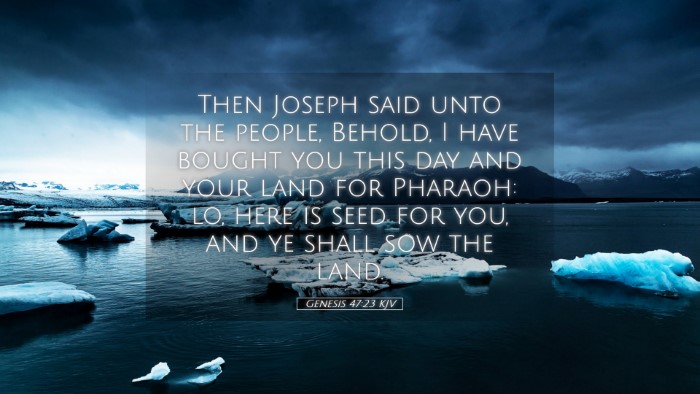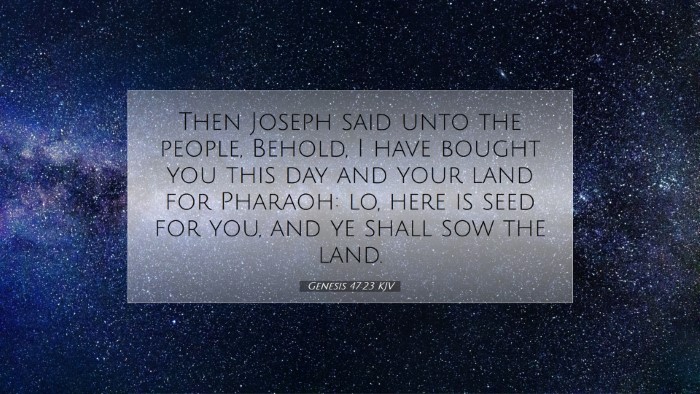Commentary on Genesis 47:23
Genesis 47:23 states: "Then Joseph said to the people, 'Behold, I have
bought you this day and your land for Pharaoh. Now therefore, here is seed for
you, and you shall sow the land.' This verse is pivotal in understanding
the dynamics of power, stewardship, and divine providence in the life of Joseph
and his governance of Egypt during a time of severe famine. The reflections
drawn from various public domain commentaries will provide a deeper
theological and practical insight into this passage.
Contextual Analysis
The context of Genesis 47 involves a critical period of famine that had
devastated much of the known world. Joseph, as the appointed steward of
Pharaoh, implemented a strategy that allowed Egypt not only to survive
but to thrive during this time. The necessity of grain led the surrounding
nations to turn to Egypt, leading to a significant transfer of wealth and
land to Pharaoh's possession.
Theological Insights
-
The Role of Divine Providence: Joseph’s administration
is seen as a fulfillment of God’s plans. Albert Barnes emphasizes that
Joseph's decisions, while politically shrewd, were also ordained by
God for the preservation of life. The sovereignty of God is palpably
present in these events, demonstrating that God works through human
agents to fulfill His purpose.
-
Joseph as a Type of Christ: Matthew Henry draws parallels
between Joseph and Christ, highlighting that just as Joseph provides for
the lives of his people, Christ offers eternal sustenance to humanity.
Joseph’s actions reflect the redemptive work of Christ who gives
Himself for the sustenance of the spiritual life of believers.
-
Human Stewardship and Responsibility: Adam Clarke
comments on the concept of stewardship that Joseph exhibits. His
actions reflect a model of responsible governance where leaders are
to look after the well-being of their people. The ethical implications
for pastors and leaders today are profound; they are called to manage
resources wisely and with compassion.
Practical Applications
The implications of Genesis 47:23 extend beyond the historical narrative.
For pastors, theologians, and students, this passage invites reflection on
how leaders should respond to crises. Here are several points of application:
-
Embrace Challenges as Opportunities: Joseph did not shy
away from the famine; instead, he saw it as a chance to serve and
manage resources effectively. Leaders today should seek to view
challenging circumstances as opportunities to exercise faith and
provide guidance.
-
Commitment to the Common Good: Joseph’s commitment to
the well-being of others is a critical lesson. He bought the people and
land not for personal gain, but for their survival under Pharaoh’s rule.
Pastors are reminded that their ultimate goal should be the spiritual
and physical well-being of their congregants.
-
The Call to Provide Equitably: The distribution of
seed to the people symbolizes the responsibility of leaders to ensure
that resources are available for renewal and growth. There is a
prophetic call for churches to ensure equity in their communities,
addressing the needs of the most vulnerable.
-
Fostering Dependency on God: While Joseph provided for
the immediate needs, the underlying truth is the people must ultimately
depend on God for their sustenance. This speaks to the necessity
of leading congregations in faith, reminding them that it is God who
provides for all their needs.
Conclusion
In conclusion, Genesis 47:23 serves as a multifaceted text through which
we can explore themes of divine providence, human responsibility, and the
redemptive plan of God exemplified through Joseph. Pastors, students, and
theologians are called to consider the implications of this verse as they
navigate their ministries in a world often marked by crises. The insights
from the commentaries of Matthew Henry, Albert Barnes, and Adam Clarke
remain relevant, encouraging leaders to act with integrity, compassion,
and a profound trust in God’s providence.


